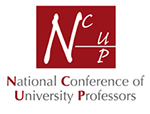Report on Sir Oliver Letwin’s talk at the House of Lords 23rd May 2019
The Meaning of a University
NCUP HOUSE OF LORDS LUNCH 23.05.19
The Right Honourable Sir Oliver Letwin MP
 Sir Oliver Letwin addressed the NCUP luncheon at the House of Lords, a gathering of 70, which was hosted by Baroness Pauline Perry, on ‘The meaning of a university’. Speaking without notes Sir Oliver began by saying this topic had always interested him as a student especially when he studied the formation and structure of the medieval university in his time at Cambridge. He sees such an institution as a ‘body corporate’, one which is not necessarily equated with academic work or hard science etc, but where collectivities or teams can undertake and represent various kinds of research endeavour. He commented on the importance of the value of being able to just sit and think- and to explore areas outside the curriculum or known body of information to produce research that will create a paradigm shift, adding that this often occurs in unexpected ways, through discoveries, or surprises, rather than through the systems of knowledge (epistemologies ) which we currently rely on for teaching and research. Some of the greatest researchers came from outside the academy or at a tangent to it: for example, Einstein, would not have found it easy today to get a place in a university.
Sir Oliver Letwin addressed the NCUP luncheon at the House of Lords, a gathering of 70, which was hosted by Baroness Pauline Perry, on ‘The meaning of a university’. Speaking without notes Sir Oliver began by saying this topic had always interested him as a student especially when he studied the formation and structure of the medieval university in his time at Cambridge. He sees such an institution as a ‘body corporate’, one which is not necessarily equated with academic work or hard science etc, but where collectivities or teams can undertake and represent various kinds of research endeavour. He commented on the importance of the value of being able to just sit and think- and to explore areas outside the curriculum or known body of information to produce research that will create a paradigm shift, adding that this often occurs in unexpected ways, through discoveries, or surprises, rather than through the systems of knowledge (epistemologies ) which we currently rely on for teaching and research. Some of the greatest researchers came from outside the academy or at a tangent to it: for example, Einstein, would not have found it easy today to get a place in a university.
In the latter half of his talk, Sir Letwin turned to the question of what can a university do for a society that nothing else is able to do? He suggested two key points. First, it enables fundamental innovation, that can produce a paradigm shift. Secondly, it can help us get to a sense of truth through debating and challenging claims to be the truth, and by working through contradictions in points of view. This would be beneficial in public discourse, which today he sees as ‘post-truth’ or often obfuscating and covering up. These two values, intellectual discovery and the search for the truth below appearances, he sees as central to the meaning of universities in the public sphere.
Response by Professor Janet Wilson and summary of questions by members and guests, and responses by Sir Oliver blended
Sir Oliver, on behalf of the NCUP and invited guests, I am hugely grateful to you for taking the time from your busy schedule to offer these thought provoking reflections on the meaning of a university, and providing something new for us in the second part of your address –your key points about fundamental research and the need for greater transparency in public discourse today.
Your remarks remind us that universities have developed in new directions today, while retaining their original mission: to pursue and disseminate knowledge and learning for the betterment of communities and society. This is enshrined in the words of Cardinal Newman: that the pursuit of higher education would create free, equitable, calm moderate and wise minds, improve the student and make the progress of civilisation possible.
We now have national measures of success like the REF (Research Exercise Framework) and the TEF (Teaching Exercise Framework), and a highly regulated educational environment which is dominated by output metrics. Universities are ‘engines of social mobility’, concerned with equality, diversity and widening participation, in ensuring that students from lower income families have access to higher education, that there is gender equality and multiculturalism. Since the introduction of tuition fees, universities have an extended civic duty as providers for students, their customers or clients, in facilitating employability and social access in ways that can be measured statistically. It seems that the REF, for example, based on national metrics and league tables, assesses and quantifies research performance and achievement, but goes against the grain of the scholarly need to have the space to think. Measuring the pursuit of knowledge competitively might obscure these core goals of a liberal education: valuing fundamental research that may create a paradigm shift, or the search for the truth. You have drawn our attention to the fact there is an ongoing tension between these roles of the modern university: the need to retain the original mission and to modernise by a framework of success and accountability measures. Many here would agree with your remarks, and find invaluable your message about the unique meaning of universities for society despite these contemporary changes.
Vice-President, NCUP, Professor Janet Wilson, University of Northampton
